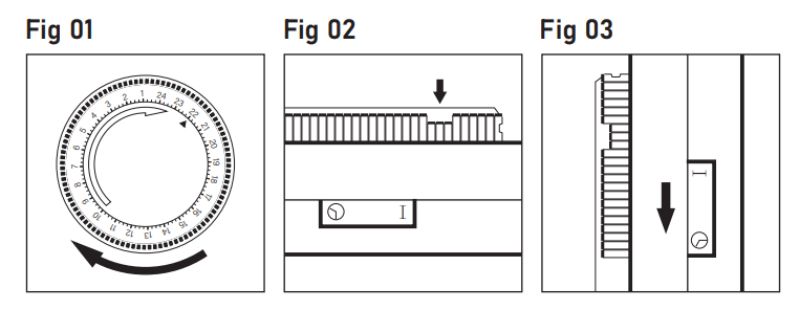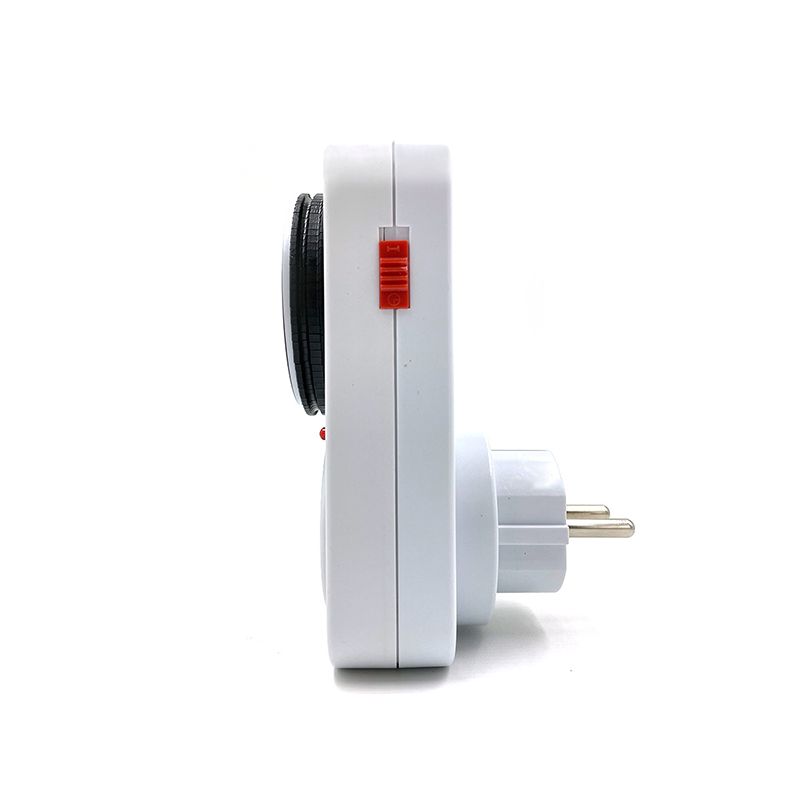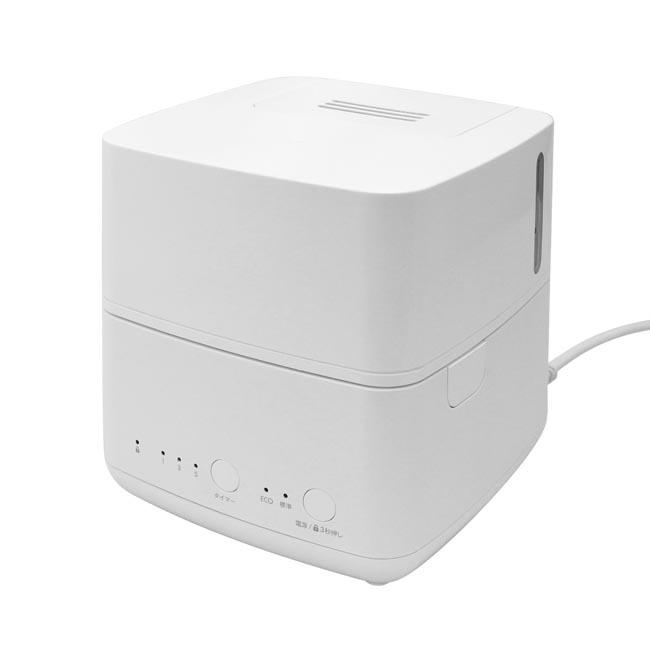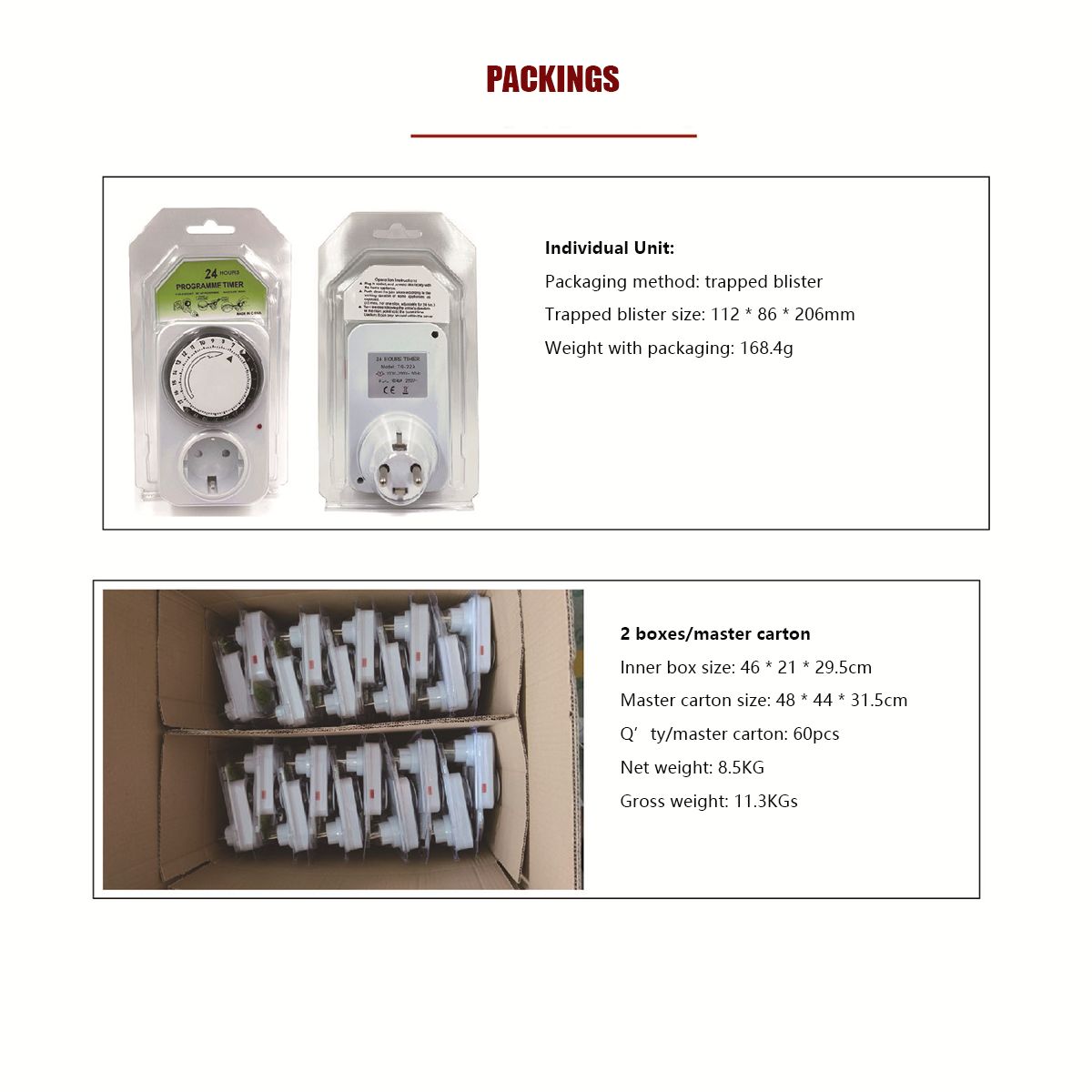
Products
24 Hours Mechanical Timer German CE Certified Wall Plug Socket
Features
| Voltage | 250V, 50Hz |
| Current | 16A max. |
| Power | 4000W max. |
| Materials | PP housing + copper parts |
| Timing Range | 15 minutes to 24 hours |
| Working Temperature | -5℃~ 40℃ |
| Individual Packing | Trapped blister or customized |
| 1 year guaranty |
Features
Set Up Clock
*Turn the dial clockwise and align the current time with the black arrow ▲.(Fig 01=22:00)
*The turntable can only be turned clockwise, and reverse rotation is prohibited.
Programming/Schedule
*Push down a single PIN for every 15 minutes of ON time.(Fig 02)
e.g.If you want the timer to give power between 11:00 and 12:00,push down ALL four pins between 11:00 and 12:00.
*Plug timer into the socket.
*Connect this facility with the household appliance.
Mode Selection
*Slide the red switch DOWN to activate the timer(Fig 03). Power will now turn ON according to the PIN configuration.
*Slide the switch UP to deactivate the timer.Power will always be ON.

Advantages of KLY CE certified 24 Hours Mechanical Timer German plug socket
CE Certification: CE certification means that the product complies with the European Union's safety, health, and environmental protection standards,which allows the product to be legally sold within the European Economic Area (EEA).
Mechanical Operation: Mechanical timers often have a simpler design compared to electronic ones, which can make them more reliable in certain applications.
Durability: Mechanical timers may be less prone to electronic malfunctions and may have a longer lifespan in certain environments.
Intuitive Design: Mechanical timers are designed with straightforward controls, making them easy to set and operate without requiring advanced technical knowledge.
No Power Dependency: Mechanical timers typically do not rely on external power sources, reducing the need for batteries or a constant power supply.
24-Hour Timer: A 24-hour timing capability allows for a broad range of applications, such as scheduling devices or systems to turn on or off at specific times throughout the day.
Affordability: Mechanical timers tend to be more cost-effective than their digital or electronic counterparts, making them an attractive option for budget-conscious consumers.
No Electronic Waste: Mechanical timers generally produce less electronic waste since they may not have electronic components that are difficult to recycle.
Battery-Free Operation: The timer operates without batteries, it eliminates the need for constant battery replacements, contributing to a more sustainable and hassle-free experience.















